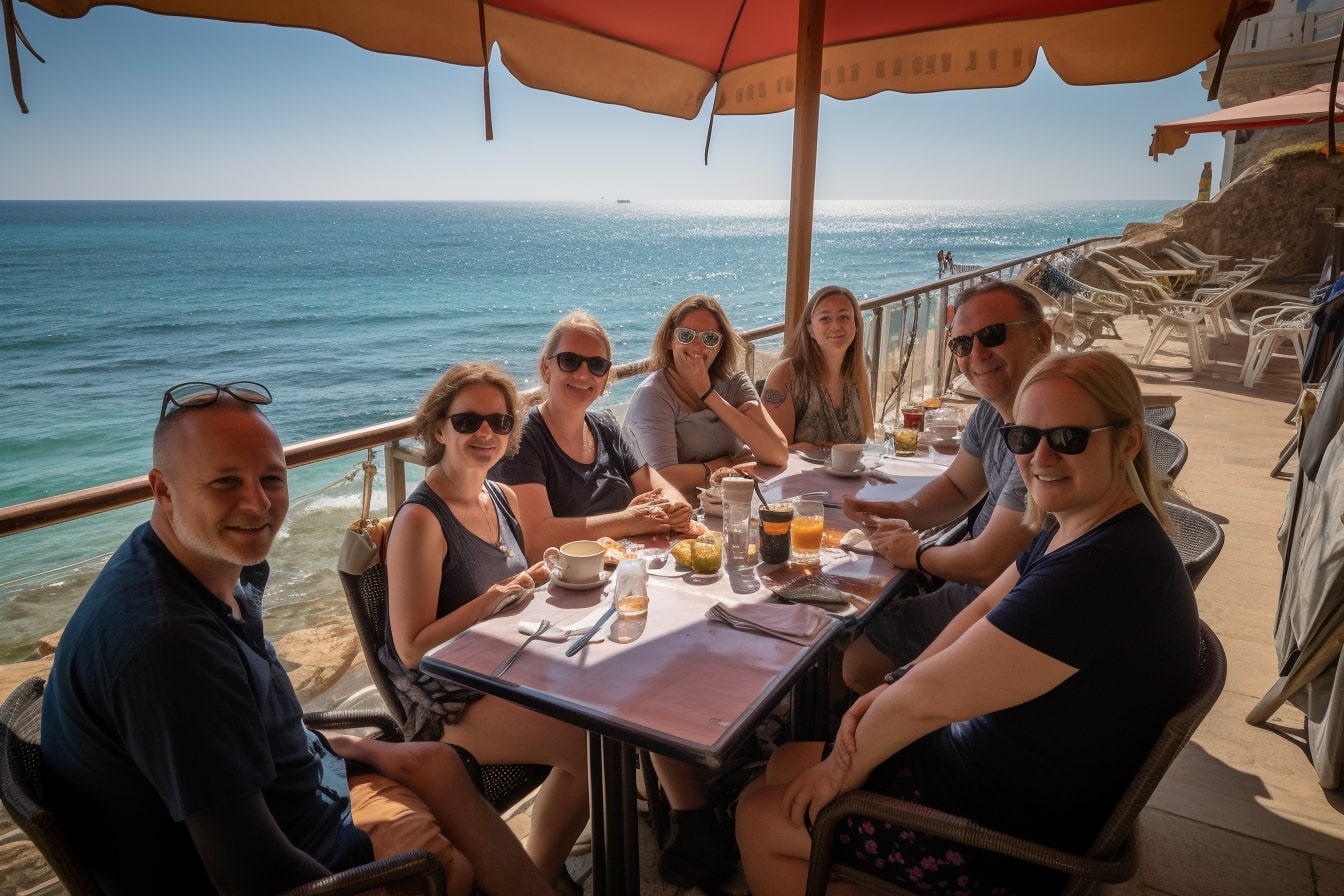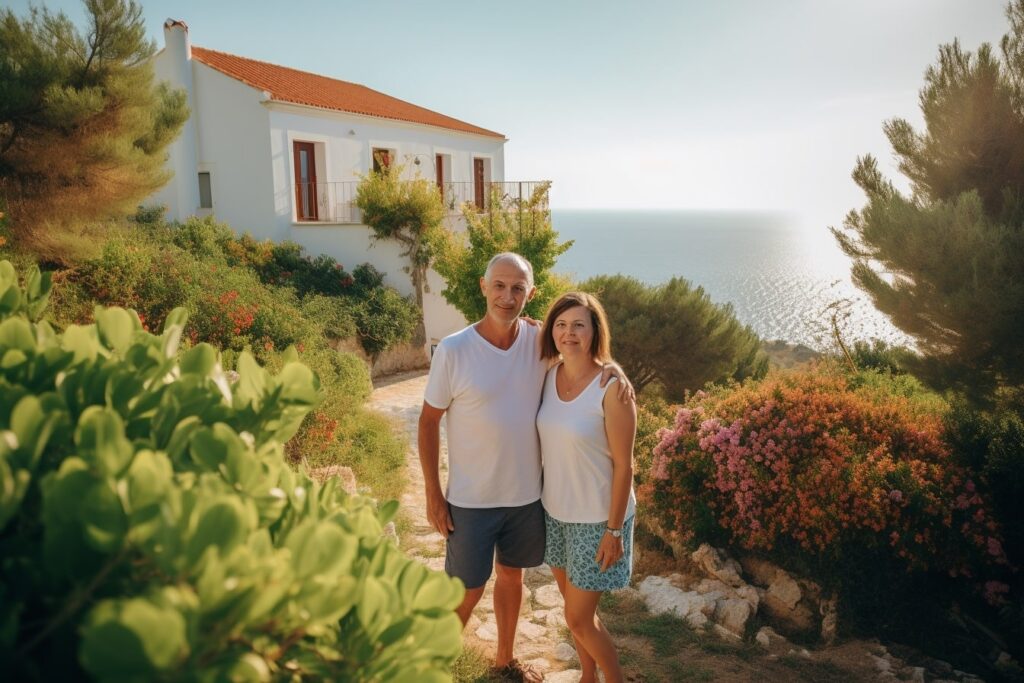One in five Cyprus residents were born abroad, according to a new survey. Many of those are from the UK. What brings them all to Cyprus, asks Alix Norman
According to a recent survey, Cyprus has the third-highest rate of foreign-born nationals in the EU. Luxembourg tops the list, closely followed by Malta. Here, on this island, 22.7 per cent of residents were born in another country.
While the majority of residents born overseas are from Greece, the second largest population of foreign-born residents on the island is from the UK. The figure fluctuates depending on the reliability of the data (some websites put the number as high 90,000!). But, speaking to the House of Commons last year, ex-Foreign Minister Ioannis Kasoulides suggested that over 40,000 British nationals reside permanently in Cyprus.
Which got us wondering: what’s bringing these Brits to Cyprus? And what’s keeping them here? 40,000 people can’t have chosen Cyprus purely for the weather!
“Cyprus was our sort of half-way house,” says Terry. “We lived in the Channel Islands; our family was in New Zealand. Cyprus was where we’d break our journeys, as well as being a great jumping-off point for my work across the Middle East and Asia. Plus, the constraints of Brexit were looming. So, four years ago, we packed up and moved to Peyia.
“It felt really good,” adds the 49-year-old artist, “to get my family out of the rat race; Britain is cold, dark and dangerous. But here, my three-year-old daughter and I can explore incredible historical sites in sunshine and safety.”
Terry’s daughter attends a Greek pre-school. “Yes, we chose Peyia for its large British population, but my Scottish wife and I really want the whole family to integrate. We’re all learning the language; it’s easy to become complacent about living abroad, but you have to make a consistent effort.”
While Terry does miss friends in the UK, he’s thrilled to be “out of the cold and the traffic! If there’s one thing I find challenging about our new life, it’s the red tape – importing our car and buying our home wasn’t easy. But we do plan to be here for good.”
At the other end of the island, Colette has been in Cyprus for almost 20 years. The 45-year-old Newcastle native moved to Frenaros in 2004 to fulfil her husband’s dreams. “He was much older; an ex-military man who’d always wanted to retire to the simpler life he’d seen in Cyprus.”
Sadly, her husband passed away just a few years later. “And yet, I stayed,” says Colette. “I wanted to be near my husband’s grave – he was buried here, on the island he loved, and I wanted to honour that.”
Her friends were also a factor: “Cyprus can still feel a little alienating at times, but I have a good circle of friends of all nationalities. Although I have seen changes of late: the recent influx of eastern Europeans seems to have brought an uptick in crime, and the cost of living is rising. Now, when I come back from the UK, half my suitcase is filled with groceries just to save money!”
While every reason for moving to Cyprus certainly can’t be covered in one article, cost of living was a factor cited by many who relocated in previous decades. But things are changing, says 82-year-old Oroklini resident Gwyneth.
“My husband and I took early retirement in the 90s and moved to our place in the sun, choosing Cyprus over Portugal or Spain because everyone speaks English. But cost of living was a factor too. Swansea was becoming increasingly expensive, and we knew our savings would last longer abroad.
“What we didn’t expect,” adds the former nurse, “is that we’d both live so long! Over the age of 80, health becomes a serious issue; even with Gesy, we’re starting to struggle financially. You can still live fairly cheaply if you buy from local markets and avoid imported goods, but even the basics have rocketed in price over the last few years. Honestly, we’ve been talking about going back to the land of Tesco!”
Family was another common reason. “I did the classic Shirley Valentine,” reveals Glasgow-born Heather. “I came out to Napa for a week in summer 2012, fell in love with the son of a restaurateur, and was married before the year was out!”
With two young kids in school and her husband’s elderly parents to take care of, Heather admits to “feeling stuck. In Glasgow, I was a healthcare administrator. In Nicosia, I teach English out of my spare room. I love my husband, I love my kids. But I can’t help wondering what could have been.”
For others, Cyprus constitutes a return to the ‘home’ of which their parents spoke so fondly. “I imagine a large number of the local Brits are like me, born in the UK to Cypriot immigrants,” says 52-year-old Jimmy. “I used to visit each summer and, in my mid-40s, moved out to escape the grey skies and hard grind of the UK. But a lot has changed since my father’s time.
“For a start, salaries are a lot lower in Cyprus,” says the accountant. “And the cost of living doesn’t necessarily correspond. Yes, you can build a 4-bed house in Fasoula for the price of a small flat in Southgate, but your day-to-day living will be pretty much the same as in Britain – in some cases, even more expensive.”
300,000 Cypriots live in the UK, the majority of these are in London. And Jimmy misses the city’s cosmopolitan nature. “The kids are settled here, my English wife loves the sun and the safety. But I live a sort of in-between existence – souvla on Sundays with my parents, the pub with my British friends during the week. I’ve never quite fitted in anywhere. And life on this island is certainly not as rosy as it was in the past. I do think any Brit considering moving to Cyprus these days needs to think very carefully about their decision.”








Click here to change your cookie preferences